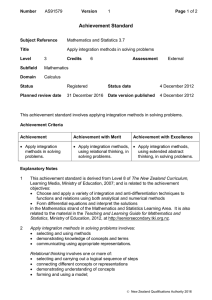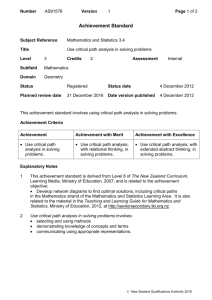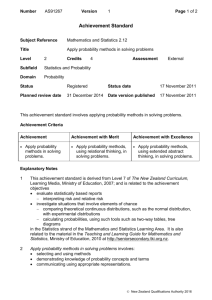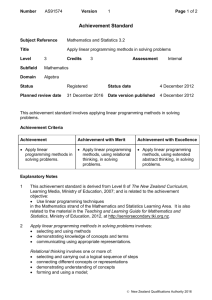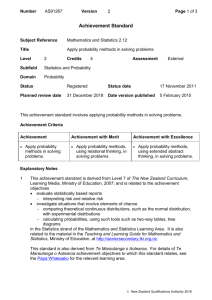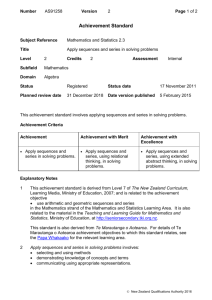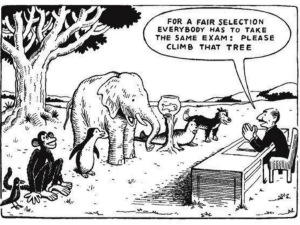91578 Apply differentiation methods in solving problems
advertisement
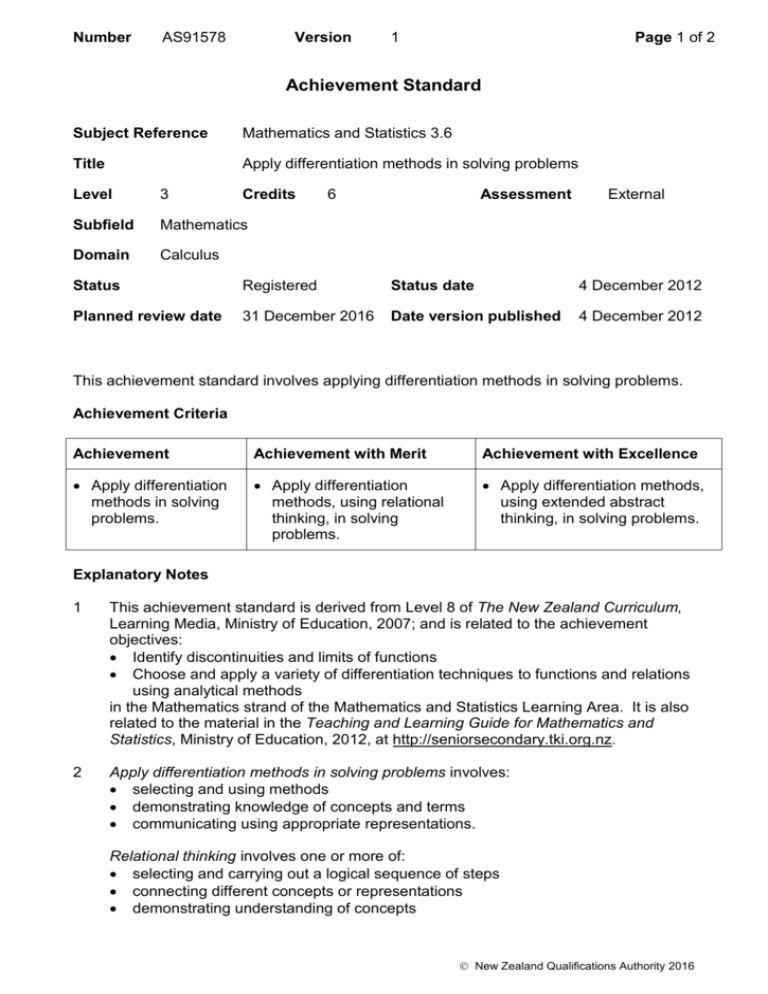
Number AS91578 Version 1 Page 1 of 2 Achievement Standard Subject Reference Mathematics and Statistics 3.6 Title Apply differentiation methods in solving problems Level 3 Credits Subfield Mathematics Domain Calculus 6 Assessment External Status Registered Status date 4 December 2012 Planned review date 31 December 2016 Date version published 4 December 2012 This achievement standard involves applying differentiation methods in solving problems. Achievement Criteria Achievement Achievement with Merit Achievement with Excellence Apply differentiation methods in solving problems. Apply differentiation methods, using relational thinking, in solving problems. Apply differentiation methods, using extended abstract thinking, in solving problems. Explanatory Notes 1 This achievement standard is derived from Level 8 of The New Zealand Curriculum, Learning Media, Ministry of Education, 2007; and is related to the achievement objectives: Identify discontinuities and limits of functions Choose and apply a variety of differentiation techniques to functions and relations using analytical methods in the Mathematics strand of the Mathematics and Statistics Learning Area. It is also related to the material in the Teaching and Learning Guide for Mathematics and Statistics, Ministry of Education, 2012, at http://seniorsecondary.tki.org.nz. 2 Apply differentiation methods in solving problems involves: selecting and using methods demonstrating knowledge of concepts and terms communicating using appropriate representations. Relational thinking involves one or more of: selecting and carrying out a logical sequence of steps connecting different concepts or representations demonstrating understanding of concepts New Zealand Qualifications Authority 2016 Number AS91578 Version 1 Page 2 of 2 forming and using a model; and also relating findings to a context, or communicating thinking using appropriate mathematical statements. Extended abstract thinking involves one or more of: devising a strategy to investigate or solve a problem identifying relevant concepts in context developing a chain of logical reasoning, or proof forming a generalisation; and also using correct mathematical statements, or communicating mathematical insight. 3 Problems are situations that provide opportunities to apply knowledge or understanding of mathematical concepts and methods. Situations will be set in reallife or mathematical contexts. 4 Methods are selected from those related to: derivatives of power, exponential, and logarithmic (base e only) functions derivatives of trigonometric (including reciprocal) functions optimisation equations of normals maxima and minima and points of inflection related rates of change derivatives of parametric functions chain, product, and quotient rules properties of graphs (limits, differentiability, continuity, concavity). 5 Assessment Specifications for this achievement standard can be accessed through the Mathematics and Statistics Resources page found at http://www.nzqa.govt.nz/qualifications-standards/qualifications/ncea/subjects/. Replacement Information This achievement standard replaced unit standard 5265 and AS90635. Quality Assurance 1 Providers and Industry Training Organisations must have been granted consent to assess by NZQA before they can register credits from assessment against achievement standards. 2 Organisations with consent to assess and Industry Training Organisations assessing against achievement standards must engage with the moderation system that applies to those achievement standards. Consent and Moderation Requirements (CMR) reference 0233 New Zealand Qualifications Authority 2016
